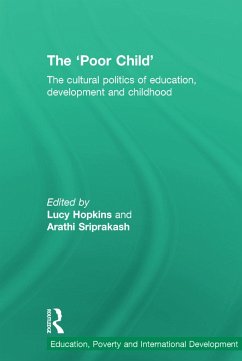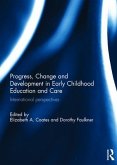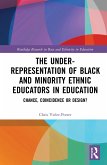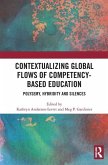This book brings together analytic approaches from childhood studies, sociology, cultural studies and development studies to illustrate the different ways in which the concept of the 'poor child' is constructed and mobilised through development policy agendas in different national contexts. It unsettles the simplistic notions of the 'global' or 'universal' child that appear frequently in development theory and offers an interdisciplinary engagement with research across cultural sites and national contexts. The book brings the figuration of the 'poor child' to the centre of its analysis to ask how the child subject is understood in the developing world. The interdisciplinary approach of the volume offers new insights into the way the constitution of childhood affects children's lives either materially, culturally or educationally. Fresh theoretical and methodological ideas invite the reader to consider a range of frameworks to understand 'childhoods' in a variety of national and cultural contexts. The analysis draws on multiple sites of knowledge production and makes use of textual and ethnographic research based in South and South-East Asia, Sub-Saharan Africa, South America, Australia, the UK and USA. Through its focus on childhoods in contexts of poverty, the book critically examines the ways in which 'development' itself is constituted within development studies, development policy, and in wider cultural discourses of international development. Including original pieces by international scholars in the field, the book's central critique of the 'deficit' model of the poor child simultaneously illustrates the limitations of a 'deficit' model of 'developing countries'. It demonstrates that the idea of 'development' itself is much more complex and contingent than the linear trajectory or game of 'catch-up' that some development theories assume.







